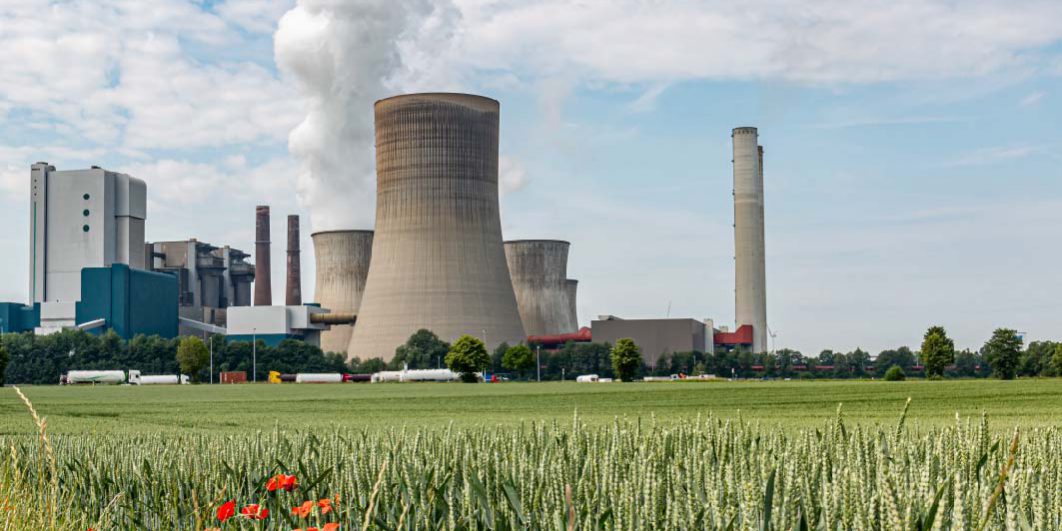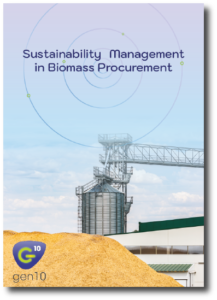Biomass power generation provides many benefits to producers and consumers. But as with any fuel type, it has its own unique challenges, whether in a unit converted from the use of coal or in a purpose-built biomass facility.
The lower net calorific value (NCV) of biomass compared to coal creates a range of logistic pressures. Even when woody biomass is pelletised, it produces 4.8 kWh per kg, compared to 7.5 to 9.2 kWh/kg for coal. Biomass also has a much lower density than coal, meaning that generators need a larger quantity of biomass, that storage costs are higher due to the larger volume needed and that their pre-existing transport infrastructure carries a lower weight of biomass than it did coal in an equivalent volume.
Biomass storage can also present a challenge. Long-term outdoor storage is not feasible as the material absorbs moisture and can begin to decompose, meaning that energy is lost and the remaining material becomes less combustible. Other potential hazards of biomass storage include the possibility of dangerous levels of CO2 being produced as the material decomposes in storage/transportation and fire risk from the highly combustible pellet powder.
These logistical challenges mean that biomass power generators need the systems and processes in place to guarantee a consistent supply of feedstock and reduce the risks and costs of storage – especially when dealing with multiple partners, and biomass suppliers/processors need to be able to provide this supply. Generators also need to maintain detailed, accurate reports of burn rates and assays that will impact on combustion efficiency to ensure a leaner, more reliable operation.
The ETRM gap
Energy Trading and Risk Management technology (ETRM) provides a range of useful functionality for power generators when it comes to managing the electricity that has been generated. However, whilst ETRM systems may have some commodity management functionality, they do not always provide the same depth of contract management and logistics functionality for the fuels coming into the generator that can be expected from modern commodity management technology.
This is why Gen10 have created a series of commodity management apps that solve a wide range of biomass supply chain challenges. The apps integrate with your existing commodity management technology (including ETRM, CTRM and ERP systems) to add more efficient digital commodity management to your systems and processes. Contract management apps allow you to better manage your supply chain whilst only adding the functionality that creates a greater return on investment across all your commodity management systems.

How does contract management solve the problem?
Gen10’s Contract.Manager app provides complete visibility over counterparties, contracts and documents, whilst automating workflows and reporting to ensure both operational excellence and regulatory compliance.
The app allows you to digitalise every trade and uses automated processing workflows to make contract management easier and faster, with fewer errors and omissions. When the contract details are entered, pre-approved templates and special clauses create contracts using the data already input and the contracts are progressed through your own approval processes, reducing the risk of non-compliance.
Contract.Manager can be accessed securely from anywhere on almost any device, with digital approvals and signatures to ensure the most efficient contract processing. Because every action for each contract is carried out within Contract.Manager, you have complete visibility of all positions and counterparty finance, as well as a complete audit trail. And all reports are updated as soon as an action is taken, with no need to wait until end-of-day or -month reports.
Contract.Manager has many features designed for biomass. Procurement and planning are supported with burn forecasting using actual and average calorific values. There are also multi-stage sampling and assay options, which can update pricing and invoicing as well as improving planning and maintenance.
Counterparty sustainability data is also centralised and made visible, with certificate management that includes reminders of expirations and renewals, as well as general counterparty management such as multiple addresses, contacts and business types. Contract.Manager also includes integrations to your accounting system for automated data sharing and less risk of copying or reporting errors.
By managing all quality, counterparty, risk and compliance data in one contract management system, biomass generators gain better visibility and control of their feedstock, leading to more efficient operations, less risk and fewer operational bottlenecks. Contract.Manager gives the biomass industry a scalable and flexible solution to commodity management that allows them greater scalability and flexibility in their operations.
Find out more about contract and commodity management in biomass with Gen10’s new eBook – download your copy now.
Want to read more?
Subscribe now for monthly updates
By submitting your details you agree that we can store your data and communicate with you. You can opt out of these communications at any time. Read all in our Privacy Policy.




